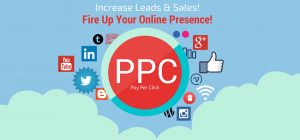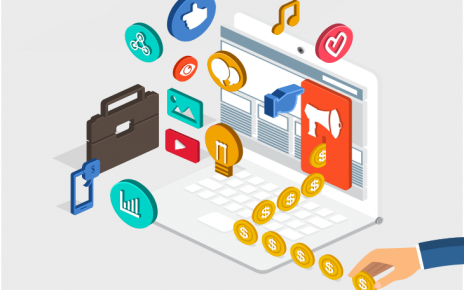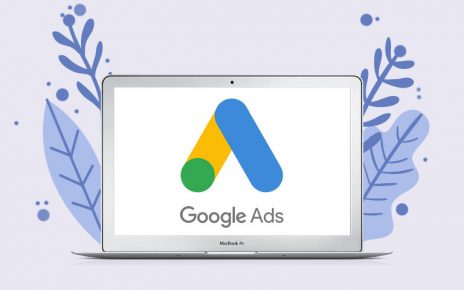PPC is a very popular as well as a relatively inexpensive form of SEO practice. PPC has been doing quite well for itself, despite the reservations against it by some industry professionals. There has been a continuous debate as to whether PPC has a future or not but regardless of what advancements the age of machine learning and AI brings about, PPC (at least for now) isn’t going anywhere, and here are a few reasons as to why:
- Cost Effective: As stated earlier, PPC is a very cost-effective form of advertising for shorter durations, if executed properly. Because of the cost-effectiveness, it makes it a decent option for SMEs to invest in the practice and get quick results. Other than that, it is also very straightforward to set up and get going and doesn’t require as much technical prowess as say some other forms of advertising SEO techniques.
- Quick deployment: One of the key selling points for PPC ads is that they are very quick to gather results. The rate of success can be actively monitored and the campaign can be further tweaked on the fly if the desired results are achieved. This also means that PPC can be actively used to monitor campaign leads and with the utmost precision.
- Direct form of advertising: In PPC advertising, the user isn’t bloated with a ton of unnecessary information. This form of advertising is quite direct and usually very targeted to the end-user, and this is one of the few factors as to why PPC is so popular.
- Good traffic earner: PPC is a good earner of direct traffic to websites. Since PPC doesn’t try to obscure itself masquerading as something else, users generally find it more appealing to click on said links, if they find the information useful. PPC also boosts the ratings of websites if implemented correctly.
Making the most out of your current PPC campaign
The biggest gripe about PPC is that it isn’t sustainable over the long term as an ineffective PPC campaign can actually cost you a decent amount of money. However, this is easy to negate because PPC is actually pretty adjustable overall. So, how do you make the most out your existing PPC campaign?
- Specific Targeting: As mentioned earlier, PPC is very adjustable. A common misconception that people have is that PPC is all about driving more and more traffic. However, it has been proven time and again that quality trumps quantity every time. PPC can adhere to individuals that actually find the advertised content or products useful. This negates unnecessary site traffic and reduces the rate of bounce and dramatically increases your session duration which are both ranking factors for Google.
- Monitoring Click-through rates and SEO scores: The click through rate and the SEO scores are parts of the same coin. Search Engines like Bing and Google have their own rating system that monitors the click through rates in accordance to your used keywords. This system also tells you whether you are overspending on your PPC campaign because traffic diverted through the keywords usually earn for your campaign.
- Better content: Most websites usually have the habit of bloating the user with unnecessary or unhelpful information through their PPC campaign. But professional SEO practitioners usually shun this practice and instead believe that PPC coupled with stronger content can often yield higher visitor rates and even visitor rebound. Products inside PPC links coupled with more details and stronger reviews will often entice the viewer to buy the product, rather than window-shop.
- Live updates and analytics:Regardless of whichever ad agency you pick, it is also going to come with the option for live analytics. This is a great way to keep track of your PPC campaign in real time, as well as keeping an eye on the expenses and visitor rate. Analytics can also give you valuable insights on the four stages of the sales funnel for your campaign, which are awareness, decision and action.
AI vs. PPC
When you hear about the rapid developments that have been made in AI and its impact on businesses, it is easy to see why analysts don’t believe in it anymore. Making matters worse, Google is set to replace its current search algorithm with an AI in the near future which would mean that PPC advertising soon may be a thing of the past.
The chief reason PPC is at stake is because;it is quite direct in its approach to display relevant information. An AI could potentially display relevant information too with sufficient sample data. Adding insult to injury, AI-generated results might cost next to nothing for many small business owners as they won’t need to spend a fortune on ad campaigns.
because;it is quite direct in its approach to display relevant information. An AI could potentially display relevant information too with sufficient sample data. Adding insult to injury, AI-generated results might cost next to nothing for many small business owners as they won’t need to spend a fortune on ad campaigns.
However, here is where PPC trumps AI in some cases:
- Unlike AI generated results, PPC can be controlled. This makes it a useful tool for small businesses as they won’t have the necessary budgets to prepare the sites for a fully functioning AI. With the PPC however, they at least get a fighting chance as the money they pool in can be viewed in the form of live analytics.
- Sticking with SMEs, PPCs are great for guerrilla marketing tactics. Small businesses, which want to go head to head against the established giants, need a form of marketing that can get quick results with short bursts investments. The ability to cause a ripple on the internet, enough to get them noticed for the long run could prove to be very beneficial.
- PPC can target the advertiser directly. It forms a direct connection between the product of the advertiser and the content is associated with it like reviews. AI might be able to do that as well, but it’ll have to take a longer route in order to do so.
Final Word:
While the stated facts might change, PPC at least for now isn’t really going anywhere. It has a lot to catch up on and it’ll be a while before it can exceed the current efficiency of pre-existing algorithms. Yes like everything, AI might affect PPC in a few ways, but the effects won’t be as immediate as some claim it to be.



